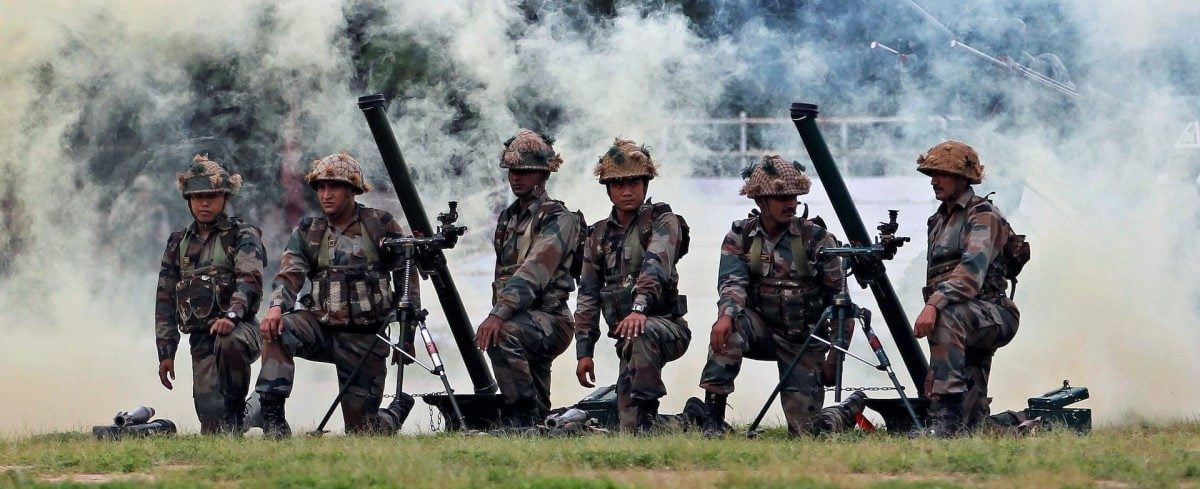India’s Response To China Must Be Well-Calibrated, Not A Knee-Jerk One

Prime Minister Modi must demonstrate astute diplomatic skills, firm political resolve, high degree of calm and patience to wade through the Galwan Valley imbroglio.
Both New Delhi and Beijing have come on a fast track to defuse the situation, which should not have arisen in the first place, with quick resumption of diplomatic and military-level talks, including a direct conversation between the Foreign ministers.
It shows sincerity and maturity of both parties in an effort to de-escalate matters, which could easily go out of hand if not handled tactfully.
At least 20 Indian soldiers were killed in hand-to-hand combat (using rods, bamboos, stones) with Chinese troops, that too at the fag end of de-escalation talks after a month-long stand-off in the Ladakh region.
The nuclear power neighbours and most populous nations of the world cannot afford a full-scale engagement and spokespersons of both nations have rightly been stressing on talks, de-escalation and conflict resolution.
Both sides have publicly blamed each other for deliberate and unprovoked attack in the midst of talks. But showing remarkable maturity, both sides returned to the table to try and peacefully resolve border issues within hours of the most violent confrontations in decades.
Prime Minister Narendra Modi had to assuage public sentiment which has been legitimately hurt and aggrieved after 20 soldiers lost their lives. No patriotic Indian can accept this brutality against their men in uniform without a strong and fitting reply.
The PM has given a very firm and strong reply, which is neither belligerent nor provocative.
He affirmed that India wants peace, but if provoked, will give a befitting reply. Whatever may be the situation and circumstance, India will firmly protect every inch of the country’s land and its self-respect, he said.
He pointed out that India has always worked closely with its neighbours in a cooperative and friendly manner and wished for their development and welfare. India has tried to ensure that differences never turned into a dispute, he reminded.
Sacrifice and endurance are part of our national character, but at the same time bravery and valour are also equally a part of it.
Chinese Premier Xi Jinping probably faces the same task. But in a democratic set-up and with free press, the Indian PM has a more difficult job in front of him. China did not declare the number of its soldiers killed in the skirmish (US intelligence agencies put it at 35) to avoid any comparison that could affect public sentiment and to avoid aggravation of the situation.
The challenge which Modi faces as a tough Prime Minister, who had not shied away from Balakot air strikes inside Pakistani territory, will be to come out with a strategic response to the killing of 20 Indian soldiers by China. How much was the attack pre-planned? With martyrs’ families and the entire nation crying for a befitting reply and anti-Chinese demonstrations flaring up at many places, the government may have to set up a timeline to whatever action it plans to take.
He has rightly called an all-party meeting on June 19 to build a political consensus over the issue.
Martyrdom of Indian officers and soldiers must not be taken lightly, but then government has to weigh all options very carefully before taking a decision. Any knee-jerk reaction could lead to devastating results.
The fact that External Affairs ministers of both countries could have a one-on-one telephone talk on the skirmish, in which they aired their differences and also decided to act more responsibly in future to ensure peace and tranquillity as per bilateral agreements and protocols, shows that both nations don’t want this incident to derail the broad overall Sino-India relations.
The fact that Indian soldiers also inflicted casualties on the Chinese side, even though numbers haven’t been confirmed, has to some extent kept public anger under check.
By talking directly to each other, India and China have also pre-empted any attempt by President Donald Trump to intervene and mediate in the matter.
At a time when both countries are battling the COVID-19 pandemic, with numbers surging in India and a second wave spreading in Beijing, military engagement won’t provide any strategic, political or diplomatic advantage.
India’s economy is in a poor state, the country is battling the raging COVID pandemic and its relationship with neighbours like Nepal, Pakistan, Bangladesh is not at its best. Hence India is unlikely to indulge in military engagement with China just as a diversionary tactic to keep public focus away from mishandling of COVID-19 situation, as some strategists suggest.
The call to ban Chinese goods during these times sounds good but is a difficult job because China happens to be India’s second biggest trading partner after the US. It was only in 2018-19 that the US surpassed China to become India’s top trading partner.
India is the biggest importer of Chinese consumer goods and had a trade deficit in 2018-19 of over $50 billion with it.
With China deeply entrenched into several areas of Indian economy, any diplomatic or economic action India takes against China must factor that into it.

Comments are closed.